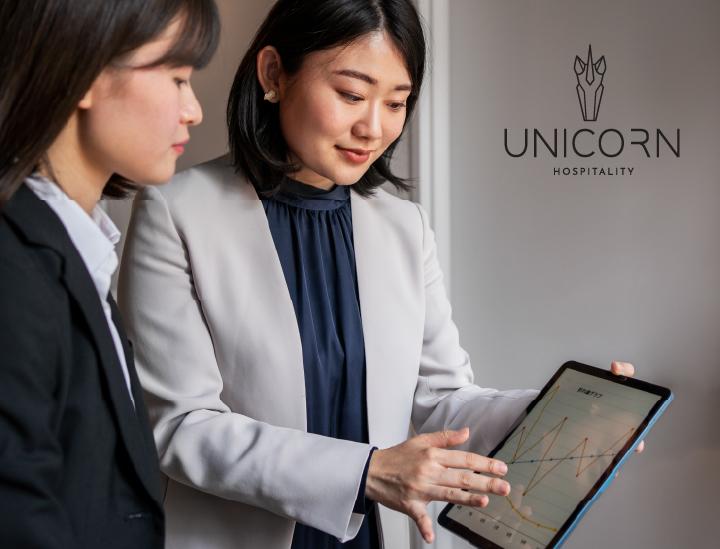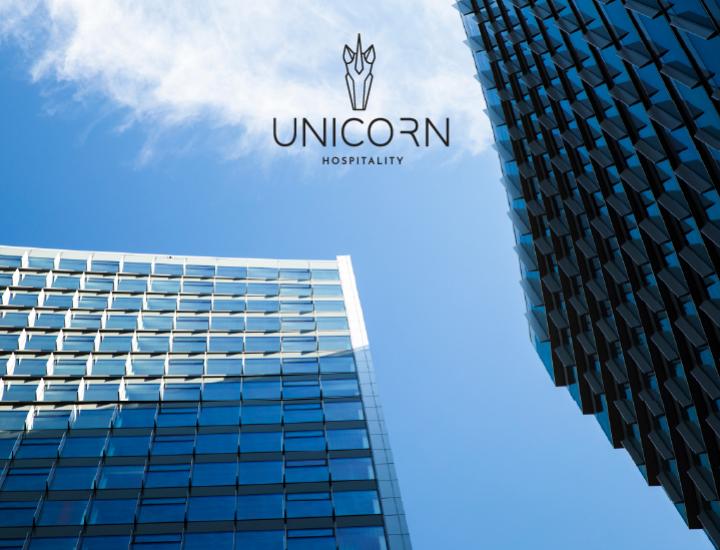Strategies for Maximizing Space Utilization in Hotel Design: A Hospitality Management Perspective

In the realm of hospitality management, space is a precious commodity. Whether it's a sprawling resort or a cozy boutique hotel, optimizing every square foot is essential for creating a functional, aesthetically pleasing, and profitable establishment.
This guide explores innovative design strategies and technology solutions to help you maximize space utilization in your hotel, enhancing guest experience and operational efficiency.
Space optimization recognizes that guest needs are as diverse as the travelers themselves. Families may prioritize spacious suites for comfort and togetherness, while business travelers seek out functional work areas with ample charging points and ergonomic seating. Couples, on the other hand, might prefer cozy nooks and intimate settings for a romantic getaway.
By thoughtfully curating a range of room types and incorporating flexible layouts, hotels can effectively cater to these varied preferences. Whether it's providing modular furniture that can be reconfigured or offering connecting rooms for larger groups, adaptability is key. When guests feel their unique needs are understood and met, it translates into higher satisfaction, positive reviews, and increased loyalty, ultimately benefiting both the guest and the hotel.
But it doesn't stop there. Underutilized areas, often overlooked in traditional hotel layouts, present untapped revenue potential. By transforming rooftops into trendy bars, lobbies into inviting co-working hubs, or even tucked-away corners into charming boutique shops, hotels can create additional income streams that significantly boost their overall financial performance. It's all about thinking creatively and strategically about space to unlock hidden value and maximize profitability.
In the evolving landscape of hotel revenue management, hotel KPI metrics such as RevPAR (Revenue per Available Room) and TrevPAR (Total Revenue per Available Room) are being complemented by an emerging metric crucial for high-cost real estate markets: Total Revenue per Square Foot. This metric is especially valuable in densely populated urban areas or prime locations where maximizing every square foot is critical.
By utilizing Total Revenue per Square Foot, hotel developers gain crucial insights that guide strategic decisions regarding room layouts, placement of amenities, and the optimal use of space for revenue-enhancing facilities like restaurants, bars, and retail outlets. This approach not only optimizes the use of space but also enhances overall profitability, ensuring that every square foot contributes to the hotel's financial success.
These technological advancements, when integrated thoughtfully into hotel design, can significantly enhance the guest experience by offering convenience, personalization, and control. They also contribute to a more efficient and sustainable operation, ultimately benefiting both the guests and the hotel's bottom line.
Whether you're developing a new hotel, renovating an existing one, or simply looking to optimize your current space, Unicorn Hospitality can help you achieve your goals through innovative design strategies, cutting-edge technology solutions, and a deep understanding of the hospitality industry.
This guide explores innovative design strategies and technology solutions to help you maximize space utilization in your hotel, enhancing guest experience and operational efficiency.
Why Space Optimization Matters in Hospitality Management
1. Enhanced Guest Experience
Smart space optimization goes beyond simply squeezing in amenities; it's about crafting every corner to enhance the guest's journey. This means designing rooms and common areas that are not only visually appealing but also comfortable and functional. Think of stylish, space-saving furniture that doubles as storage, ensuring a clutter-free environment.Space optimization recognizes that guest needs are as diverse as the travelers themselves. Families may prioritize spacious suites for comfort and togetherness, while business travelers seek out functional work areas with ample charging points and ergonomic seating. Couples, on the other hand, might prefer cozy nooks and intimate settings for a romantic getaway.
By thoughtfully curating a range of room types and incorporating flexible layouts, hotels can effectively cater to these varied preferences. Whether it's providing modular furniture that can be reconfigured or offering connecting rooms for larger groups, adaptability is key. When guests feel their unique needs are understood and met, it translates into higher satisfaction, positive reviews, and increased loyalty, ultimately benefiting both the guest and the hotel.
2. Maximizing Revenue
Efficient space utilization is a key driver of profitability for hotels. Well-designed rooms that maximize space can accommodate more guests, directly leading to higher occupancy rates—a crucial advantage in competitive markets or areas with limited real estate.But it doesn't stop there. Underutilized areas, often overlooked in traditional hotel layouts, present untapped revenue potential. By transforming rooftops into trendy bars, lobbies into inviting co-working hubs, or even tucked-away corners into charming boutique shops, hotels can create additional income streams that significantly boost their overall financial performance. It's all about thinking creatively and strategically about space to unlock hidden value and maximize profitability.
In the evolving landscape of hotel revenue management, hotel KPI metrics such as RevPAR (Revenue per Available Room) and TrevPAR (Total Revenue per Available Room) are being complemented by an emerging metric crucial for high-cost real estate markets: Total Revenue per Square Foot. This metric is especially valuable in densely populated urban areas or prime locations where maximizing every square foot is critical.
By utilizing Total Revenue per Square Foot, hotel developers gain crucial insights that guide strategic decisions regarding room layouts, placement of amenities, and the optimal use of space for revenue-enhancing facilities like restaurants, bars, and retail outlets. This approach not only optimizes the use of space but also enhances overall profitability, ensuring that every square foot contributes to the hotel's financial success.
Innovative Design Strategies for Space Optimization
Rethinking Room Layouts
- Multi-Functional Furniture: Embrace transformable furniture like sofa beds, wall-mounted desks, and hidden storage solutions to adapt spaces for different uses.
- Smart Storage Solutions: Incorporate built-in wardrobes, under-bed storage, and vertical shelving to maximize storage capacity without compromising space.
- Compact Bathroom Design: Utilize space-saving fixtures like wall-mounted toilets, floating vanities, and walk-in showers.
- Open Floor Plans: Consider open-concept layouts for smaller rooms to create a sense of spaciousness and flexibility.
Maximizing Public Spaces
- Lobby Design: Create a multifunctional lobby that serves as a welcome area, co-working space, or social hub.
- Outdoor Areas: Utilize terraces, courtyards, and rooftops for dining, relaxation, or events to expand usable space.
- Vertical Gardens: Incorporate vertical gardens to add greenery and vibrancy to limited spaces.
- Adaptable Spaces: Design conference rooms and event spaces with moveable walls and modular furniture for flexible configurations.
Embracing Minimalism and Functionality
- Declutter: Avoid excessive furniture and decorations, focusing on essential pieces that serve a purpose.
- Neutral Colors and Natural Light: Use light colors and ample natural light to create a sense of openness and airiness.
- Multi-Purpose Design: Opt for items that serve multiple functions, like ottomans with storage or headboards with built-in shelves.
- Smart Lighting: Use task lighting and dimmers to create different moods and save energy.
Leveraging Technology for Space Optimization
The integration of technology in hotel design offers a plethora of opportunities to optimize space and enhance the guest experience.- Automated Room Management Systems: Utilize sensors and intelligent algorithms to dynamically adjust energy usage, lighting, and temperature control based on room occupancy. This reduces energy waste and costs while ensuring guest comfort by tailoring the environment to their presence.
- Self-Service Kiosks: Streamline the check-in and check-out process, minimizing wait times and freeing up staff to focus on other guest needs. Simultaneously, they reduce the need for expansive reception desks, freeing up valuable floor space for other purposes.
- Mobile Apps: Provide guests with a digital hub for accessing hotel services, booking amenities, and even controlling room features like lighting and temperature from their smartphones, reducing the need for physical interfaces and informational materials. This not only saves space but also empowers guests with greater control over their environment.
- Smart Storage Solutions: Incorporate RFID technology to track inventory in real-time, ensuring that essential items are always available and that storage space is utilized efficiently. This reduces the need for overstocking and minimizes waste, contributing to a more sustainable and cost-effective operation.
These technological advancements, when integrated thoughtfully into hotel design, can significantly enhance the guest experience by offering convenience, personalization, and control. They also contribute to a more efficient and sustainable operation, ultimately benefiting both the guests and the hotel's bottom line.
Hotel Planning Services by Unicorn Hospitality
Unicorn Hospitality, a leading hotel management and consulting firm, understands the critical role of space optimization in creating a successful hotel. Their expert team offers comprehensive hotel planning services, including feasibility studies, concept development, and architectural design, all tailored to maximize the potential of your property while ensuring a seamless guest experience.Whether you're developing a new hotel, renovating an existing one, or simply looking to optimize your current space, Unicorn Hospitality can help you achieve your goals through innovative design strategies, cutting-edge technology solutions, and a deep understanding of the hospitality industry.
CATEGORIES
RELATED ARTICLES
-

From Concept to Reality: Unicorn Hospitality’s Approach to Hotel Development in Bali
-

Hotel Master Planning: A Guide to Identifying and Mitigating Key Development Risks
-

A Guide to Conducting a Comprehensive Hotel Feasibility Study
-

Unicorn Hospitality's Guide to a Hotel Launch in Malaysia
-

The Ultimate Guide to Marketing Maldives Resorts
